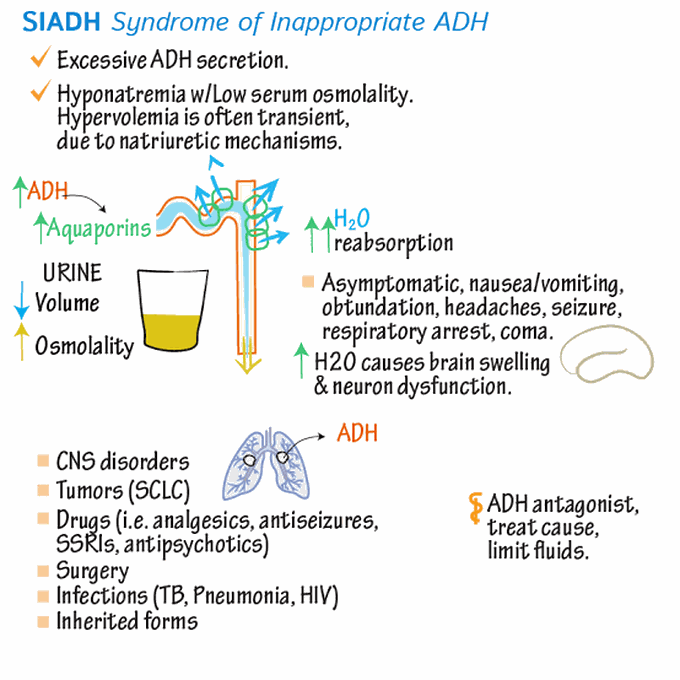


Syndrome of inappropriate Antidiuretic hormone
Syndrome of inappropriate antidiuretic hormone secretion (SIADH) is a condition in which the body makes too much antidiuretic hormone (ADH). This hormone helps the kidneys control the amount of water your body loses through the urine. SIADH causes the body to retain too much water. ADH is a substance produced naturally in an area of the brain called the hypothalamus. It is then released by the pituitary gland at the base of the brain. Causes There are many reasons why the body needs to make a lot of ADH. Common situations when ADH is released into the blood when it should not be produced (inappropriate) include: Medicines, such as certain seizure drugs, antidepressants, cancer drugs, opiates (less often), and heart, diabetes, and blood pressure drugs Surgery under general anesthesia Disorders of the brain, such as injury, infections, and stroke Brain surgery in the region of the hypothalamus Tuberculosis, cancer, chronic infections, and lung disease, such as pneumonia Substance abuse Rare causes include: Rare diseases of the hypothalamus or pituitary Leukemia and cancer of the small intestine, pancreas, and brain Mental disorders

